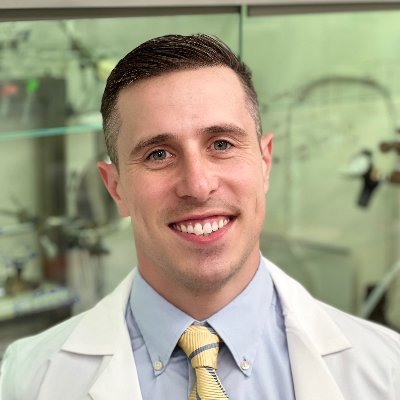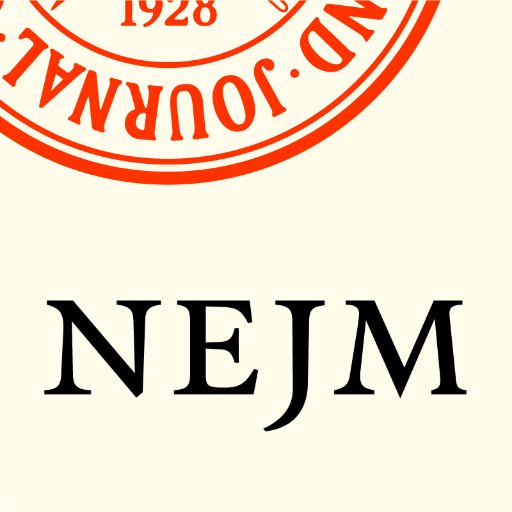
William Gibson
@wgibson
Followers
3K
Following
5K
Media
311
Statuses
2K
MD, PhD | Gibson Lab @DanaFarber | Broad Institute | Genomics+Chemical Biology
Boston, MA
Joined March 2009
Delighted that this work was published today in Nature Chemical Biology! Hoping to continue to advance p53-focused therapeutics towards patient benefit. @nchembio
TP53: - Discovered 45 years ago, most cited gene all time - No therapies - 500 million people currently living will die of TP53 mutant cancers without new therapies Our Preprint: - A general strategy for TP53 missense mutant cancers (majority) with prototype small molecules
6
25
153
Algorithmic inference from large scale functional genomic screens may now generate actionable insights into tumors too rare to profile directly. Excellent work from @Sadagopan_A and @srviswanathan
Excited to share my project w/@srviswanathan on virtual CRISPR screening -- predicting cancer dependencies from RNA sequencing alone. On unseen rare tumors, nearly every predicted dependency validated experimentally! Creating a framework to rapidly go from patient → treatment
0
0
9
Gillmore and colleagues report 24-month results from a phase 1 study of nexiguran ziclumeran, a CRISPR gene-editing approach to treating hereditary transthyretin amyloidosis with polyneuropathy. Full study results: https://t.co/vGHsrnnKjd
#Neurology #Genetics
1
7
50
Also seems like another powerful example that small decorations on the solvent exposed portion of small molecule binders can lead to powerful new proximity induction effects.
0
0
10
I thought this paper from @pottslab group at Amgen was fascinating. https://t.co/ZACE7MEb6r It has everything: Chemical induced proximity focused DELs on beads, small decorations on solvent exposed portions of known binder, one bead per well, photocleavable linkers to
4
11
94
The first time I saw "metformin effect" on a PET/CT for one of my patients, I was bowled over; it is not subtle. Now some quantification of how metformin causes the gut to excrete glucose, maybe a hint at its mechanism of action. ***How does a molecule like that achieve this!?
More quantification of intestinal glucose flux in mice and humans with and without metformin @CommsBio
2
6
20
I've really enjoyed working with Will the past few years and would highly recommend his lab to anyone interested in chem bio/cancer bio
Happy to announce my next career step - I’ve launched my independent research lab at Dana Farber! If you are a trainee interested in ambitious projects at the intersection of chemical biology and cancer biology, please reach out! https://t.co/HeBrFiAzM8
1
1
19
Grateful to everyone who helped along the way—my colleagues, mentors, daycare workers, and especially my family. Thank you all for your support in helping me land my dream job!
2
0
17
For a taste of what we’re working on, here are a couple recent projects:
1
0
5
Happy to announce my next career step - I’ve launched my independent research lab at Dana Farber! If you are a trainee interested in ambitious projects at the intersection of chemical biology and cancer biology, please reach out! https://t.co/HeBrFiAzM8
30
55
649
Fascinating work showing that the covalent addition of a nuclear importing compound, JQ1, to therapeutic oligonucleotides enhances their activities by enhancing nuclear penetration.
We have dramatically increased the activity of splice switching *and* RNase H-active antisense oligonucleotide #ASO therapeutics by conjugating a nuclear importer! Preprint led by @disha_kashyap_
@milnetom68 @chem_in_cells @OxfordChemistry @UCLChemistry
https://t.co/6j0sW0TbQU
1
3
34
It's odd that even though our bifunctionals targeted different proteins, the same spiro linker had some of the highest activity in either case. Maybe chance, maybe not. Something about these short, rigid linkers might encourage cooperativity when the orientations are just right.
2
0
4
We recently disclosed similar compounds that specifically kill TP53 mutant cells, but do not require p53 transcriptional activation for this activity. https://t.co/kgzIPkfzcb
TP53: - Discovered 45 years ago, most cited gene all time - No therapies - 500 million people currently living will die of TP53 mutant cancers without new therapies Our Preprint: - A general strategy for TP53 missense mutant cancers (majority) with prototype small molecules
2
0
5
New preprint from Nat Gray's lab on hyper-activating p53 with a BRD4 recruiting bifunctional (transcriptional activator). Y220C is the new G12C and in the next decade we'll develop compounds that act on a wide variety of p53 mutations.
New work from Nat Gray lab... Discovery of a small molecule chemical inducer of proximity that activates mutant p53 by linking to BRD4. Highlights how chemically induced proximity can be used to restore the functions of tumor suppressor proteins. https://t.co/CBQTjpRhpW
3
4
47
This first-in-class CCNE1 degrader from Monte Rosa is really impressive. It's a molecular glue that finds a shallow pocket on CCNE1 and displays cooperative binding to CRBN, w/ EC50 of 3 nM for the ternary complex. Highly specific CCNE1 degradation. https://t.co/WDDTjZiuJe
1
24
136






